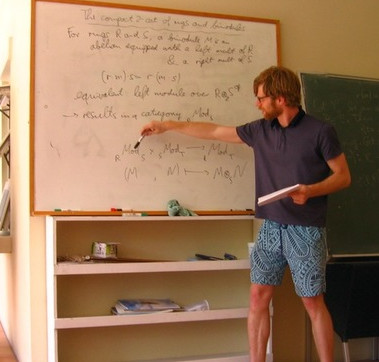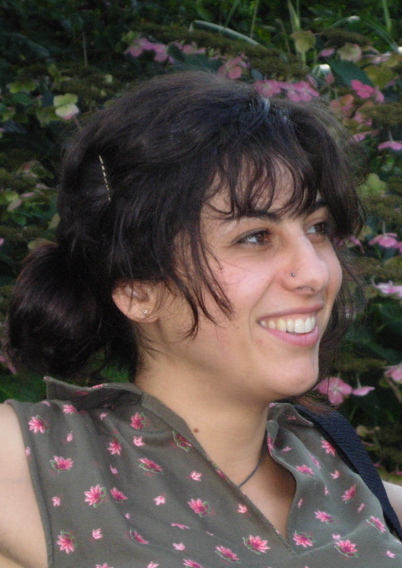Important dates
- Applications for the Summer School: Wednesday 30 January 2019
- Submission of contributed papers: Friday 3 May 2019
- Acceptance/rejection notification: Friday 7 June 2019
All deadline times are Anywhere on Earth.
The Applied Category Theory Conference and Adjoint School will take place at the Department of Computer Science of the University of Oxford between Monday 15 and Friday 19 July, 2019, and Monday 22 and Friday 26 July, 2019, respectively
Applied category theory is a topic of interest for a growing community of researchers, interested in studying systems of all sorts using category-theoretic tools. These systems are found in the natural sciences and social sciences, as well as in computer science, linguistics, and engineering. The background and experience of our members is as varied as the systems being studied. The goal of the ACT2019 Conference is to bring the majority of researchers in the field together and provide a platform for exposing the progress in the area. Both original research papers as well as extended abstracts of work submitted/accepted/published elsewhere will be considered. The goal of the ACT2019 School is to help grow this community by pairing ambitious young researchers together with established researchers in order to work on questions, problems, and conjectures in applied category theory.
For information on previouly held events see the ACT website,
The Adjoint Summer School will follow on 22- 26 July 2019.
All deadline times are Anywhere on Earth.
Prospective speakers were invited to submit one (or more) of the following:
A list of Papers.
The programme consists of the following components:
Anyone from anywhere who is interested in applying category-theoretic methods to problems outside of pure mathematics.
This is emphatically not restricted to math students, but one should be comfortable working with mathematics.
Knowledge of basic category-theoretic language -the definition of monoidal category for example- is encouraged.
We will consider advanced undergraduates, PhD students, and post-docs. We ask that you commit to the full program as laid out below.
Instructions for how to apply can be found below (above the research topic descriptions).
Applications?
To apply, please send the following act2019school@gmail.com by Wednesday 30 January 2019:
Also have sent on your behalf to act2019school@gmail.com a brief letter of recommendation confirming any of the following:
Questions?
For more information, contact Daniel Cicala or Jules Hedges
All of the participants will be divided up into groups corresponding to the projects. A group will consist of several students, a senior researcher, and a TA. Between January and June, we will have a reading course devoted to building the background necessary to meaningfully participate in the projects. Specifically, two weeks are devoted to each paper from the reading list. During this two week period, everybody will read the paper and contribute to discussion in a private online chat forum. There will be a TA serving as a domain expert and moderating this discussion. In the middle of the two week period, the group corresponding to the paper will give a presentation via video conference. At the end of the two week period, this group will compose a blog entry on this background reading that will be posted to the n-category cafe.
After all of the papers have been presented, there will be a two-week visit to Oxford University from 15-26 July 2019.
The second week is solely for participants of the ACT2019 School.
Groups will work together on research projects, led by the senior researchers.
The first week of this visit is the ACT2019 Conference, where the wider applied category theory community will arrive to share new ideas and results.
It is not part of the school, but there is a great deal of overlap and participation is very much encouraged.
The school should prepare students to be able to follow the conference presentations to a reasonable degree.
Below is a list of the senior researchers, each of whom describes a research project that their team will pursue, as well as the background reading that will be studied between now and July 2019.
Perimeter Institute for Theoretical Physics

Partial evaluations, the bar construction, and second-order stochastic dominance
Queen Mary University London

Formal and experimental methods to reason about dialogue and discourse using categorical models of vector spaces
Please register here, before 9th July 2019.
Oxford is the home of the oldest university in the English speaking world, and boasts many tourist attractions. It is easily reached from London's international Heathrow airport via the so-called airline bus service. For more information see these travel directions.
Oxford has a wide range of places to stay, including college accommodation, private rooms and flats, or short term properties to share, and many bed and breakfasts (B&Bs) and guest houses. Particularly well located B&Bs are Cotswolds, Rewley House, Linton Lodge, Parklands and Galaxie Hotel. Please contact Destiny Chen should you need further information. Demand for accommodation in Oxford is high, so the rule of thumb is to book a place as soon as possible. In terms of areas, Central/North Oxford and Jericho are the closest to the workshop venue, then along Botley Road, Abingdon Road, Cowley Road (the multicultural downtown of Oxford), Iffley Road, and Wolvercote.
The workshop will be held in Lecture Theatre B of the Department of Computer Science.
Oxford hosts many tourist attractions and events. For example, you could complete your Oxford experience by seeing a Shakespeare play outdoors.